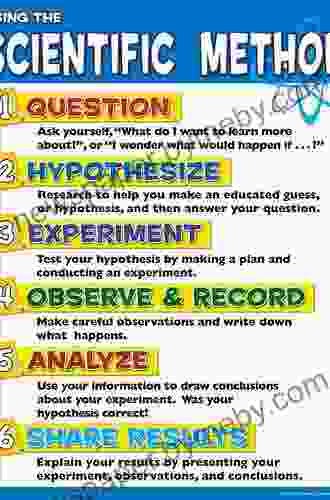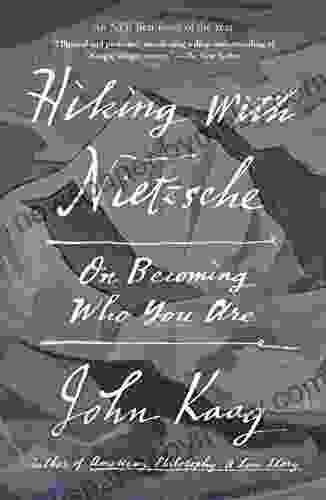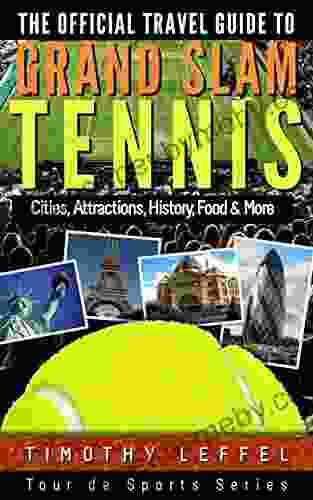Scientific Approach to Scientific Writing: Unlock the Secrets of Clear, Concise, and Persuasive Writing

Effective scientific writing is the key to successfully communicating your research findings to a wide audience, including scientists, policymakers, and the general public. Whether you're a seasoned researcher or a budding scientist, "Scientific Approach to Scientific Writing" provides a comprehensive framework to guide you through every step of the scientific writing process, empowering you to craft clear, concise, and persuasive scientific content.
The Art of Clarity: Writing with Precision
Writing with clarity is paramount in scientific communication. This guide delves into the principles of scientific style, showing you how to use precise language, define technical terms, and avoid jargon and ambiguities. You'll learn how to organize your ideas logically and present them in a way that is easy to understand.
4 out of 5
| Language | : | English |
| File size | : | 622 KB |
| Text-to-Speech | : | Enabled |
| Screen Reader | : | Supported |
| Enhanced typesetting | : | Enabled |
| Word Wise | : | Enabled |
| Print length | : | 126 pages |
1. Crafting Concise Sentences and Paragraphs
Scientific writing demands conciseness. You'll discover techniques for writing concise sentences that convey your ideas effectively without unnecessary words. The guide also provides strategies for structuring paragraphs that are coherent and focused, ensuring that your readers can follow your train of thought seamlessly.
2. Mastering the Use of Active Voice and Simple Tenses
Active voice and simple tenses have a transformative effect on scientific writing. This guide explains why using active voice enhances clarity and shows you how to use simple tenses to make your writing more direct and impactful. You'll learn how to avoid passive voice and correctly use present and past tenses in different scientific contexts.
3. Avoiding Jargon and Ambiguities
Scientific jargon can be a barrier to understanding. You'll learn to identify and eliminate jargon from your writing, replacing it with clear and accessible language. Moreover, you'll discover techniques for resolving ambiguities and ensuring that your writing is unequivocal.
The Power of Persuasion: Writing with Impact
Scientific writing goes beyond conveying information; it also aims to persuade readers. This guide unveils the secrets of persuasive writing, showing you how to present your arguments effectively, support your claims with evidence, and anticipate and counter potential objections.
1. Constructing Strong Arguments
A well-structured scientific argument is crucial for persuasion. You'll learn how to build a logical chain of reasoning, starting with a clear thesis statement and supporting it with relevant evidence and logical transitions. The guide also covers strategies for anticipating and refuting counterarguments.
2. Utilizing Evidence Effectively
Evidence is the foundation of persuasive writing. You'll explore various types of evidence, including data, statistics, and research findings. The guide teaches you how to select relevant evidence, present it objectively, and interpret it accurately.
3. Establishing Your Credibility
Establishing your credibility as a writer adds weight to your arguments. You'll learn how to use appropriate citations, avoid plagiarism, and maintain a consistent and professional tone throughout your writing. The guide also covers ethical considerations and best practices for scientific writing.
The Importance of Structure: Organizing Your Ideas
A well-organized scientific document is essential for guiding readers through your research findings. This guide provides a step-by-step approach to organizing your thoughts, structuring your content, and using headings, subheadings, and transitions effectively.
1. Outlining Your Content
A comprehensive outline serves as a roadmap for your writing. You'll learn how to create an effective outline that captures the main points of your research, establishes a logical Free Download, and ensures a balanced flow of information.
2. Using Headings and Subheadings
Headings and subheadings divide your content into manageable chunks, making it easier for readers to navigate and follow your thought process. You'll discover how to use headings effectively, ensuring that they are both informative and descriptive.
3. Creating Transitions
Smooth transitions connect your ideas and guide readers seamlessly through your writing. You'll learn how to use transition words and phrases to create a coherent and cohesive text that enhances readability and understanding.
The Elements of Impactful Scientific Writing
"Scientific Approach to Scientific Writing" doesn't stop at the basics. It delves into advanced techniques to elevate your scientific writing to new heights, including:
1. Writing Compelling s and s
Engage your readers from the very first sentence and leave a lasting impression with powerful s. You'll learn how to craft captivating s that provide context and motivate your audience, and how to write s that summarize your findings and encourage further exploration.
2. Using Visual Aids Effectively
Visuals can enhance understanding and make your writing more engaging. You'll discover the best practices for using tables, charts, and graphs, ensuring that they are clear, informative, and visually appealing.
3. Achieving Coherence and Cohesion
Coherence and cohesion are essential for a well-written scientific document. You'll learn how to use repetition, parallel structure, and other techniques to create a unified and cohesive text that flows smoothly and holds readers' attention.
Mastering the scientific approach to scientific writing is the key to unlocking your potential as a communicator of science. "Scientific Approach to Scientific Writing" is more than just a guide; it's a comprehensive companion that will empower you to craft clear, concise, persuasive, and impactful scientific documents that effectively convey your research findings and engage your audience.
With this guide at your fingertips, you can confidently navigate the challenges of scientific writing and elevate your writing to the next level. Whether you're a novice or an experienced writer, "Scientific Approach to Scientific Writing" is the essential resource that will transform your scientific writing journey.
Invest in "Scientific Approach to Scientific Writing" today and unlock the secrets to successful scientific communication.
Free Download your copy now and experience the transformative power of scientific writing excellence!
4 out of 5
| Language | : | English |
| File size | : | 622 KB |
| Text-to-Speech | : | Enabled |
| Screen Reader | : | Supported |
| Enhanced typesetting | : | Enabled |
| Word Wise | : | Enabled |
| Print length | : | 126 pages |
Do you want to contribute by writing guest posts on this blog?
Please contact us and send us a resume of previous articles that you have written.
 Book
Book Novel
Novel Page
Page Chapter
Chapter Text
Text Story
Story Genre
Genre Reader
Reader Library
Library Paperback
Paperback E-book
E-book Magazine
Magazine Newspaper
Newspaper Paragraph
Paragraph Sentence
Sentence Bookmark
Bookmark Shelf
Shelf Glossary
Glossary Bibliography
Bibliography Foreword
Foreword Preface
Preface Synopsis
Synopsis Annotation
Annotation Footnote
Footnote Manuscript
Manuscript Scroll
Scroll Codex
Codex Tome
Tome Bestseller
Bestseller Classics
Classics Library card
Library card Narrative
Narrative Biography
Biography Autobiography
Autobiography Memoir
Memoir Reference
Reference Encyclopedia
Encyclopedia Mitali Perkins
Mitali Perkins Uncle Timeo
Uncle Timeo John Clites
John Clites Peter Popham
Peter Popham Tim Howard
Tim Howard Yellow Sun Publishing
Yellow Sun Publishing John Fahey
John Fahey Jim Kristofic
Jim Kristofic Meg Medina
Meg Medina Peggy Rathmann
Peggy Rathmann Joan Tollifson
Joan Tollifson John Elsom
John Elsom Jim Downs
Jim Downs Joanna Pruess
Joanna Pruess Tamar Ellsas Chansky
Tamar Ellsas Chansky Joe Eisma
Joe Eisma William L Iggiagruk Hensley
William L Iggiagruk Hensley John L Field
John L Field John La Farge
John La Farge Marilyn Jansen
Marilyn Jansen
Light bulbAdvertise smarter! Our strategic ad space ensures maximum exposure. Reserve your spot today!

 Bruce SnyderHolistic 12 Week Plan For Optimal Fertility: The Ultimate Guide to Boosting...
Bruce SnyderHolistic 12 Week Plan For Optimal Fertility: The Ultimate Guide to Boosting...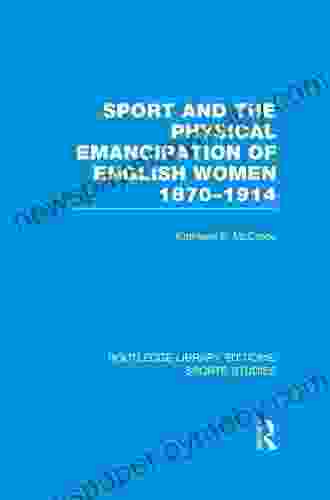
 Robert Louis StevensonSport and the Physical Emancipation of English Women: Rediscovering the Lost...
Robert Louis StevensonSport and the Physical Emancipation of English Women: Rediscovering the Lost... Carter HayesFollow ·6.3k
Carter HayesFollow ·6.3k J.D. SalingerFollow ·7.5k
J.D. SalingerFollow ·7.5k Colton CarterFollow ·13.8k
Colton CarterFollow ·13.8k Brandon CoxFollow ·9.3k
Brandon CoxFollow ·9.3k Arthur Conan DoyleFollow ·10.9k
Arthur Conan DoyleFollow ·10.9k George MartinFollow ·18.1k
George MartinFollow ·18.1k Harvey HughesFollow ·13.3k
Harvey HughesFollow ·13.3k Sean TurnerFollow ·6.4k
Sean TurnerFollow ·6.4k

 Jermaine Powell
Jermaine PowellThe Ultimate Guide to Unlocking Consistent Profitable...
Introducing the 2nd Edition of the...
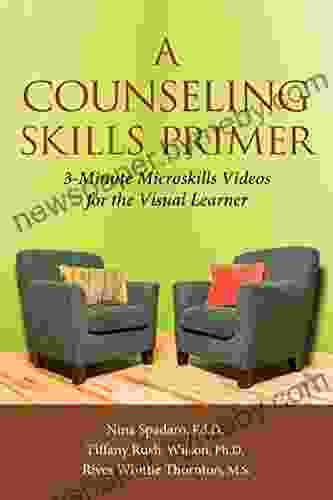
 Yasunari Kawabata
Yasunari KawabataMinute Microskills Videos: The Ultimate Guide for Visual...
Unlock Your Potential with Bite-Sized Video...
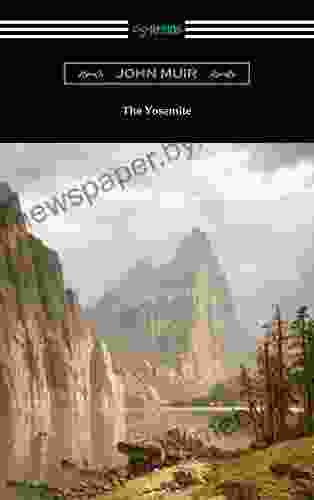
 Nathan Reed
Nathan ReedUnveiling the Wonders of Yosemite through John Muir's...
Immerse yourself in the breathtaking beauty...

 Gabriel Garcia Marquez
Gabriel Garcia MarquezWhen You Find Me Novel: A Gripping Mystery Unravels
In the sleepy...
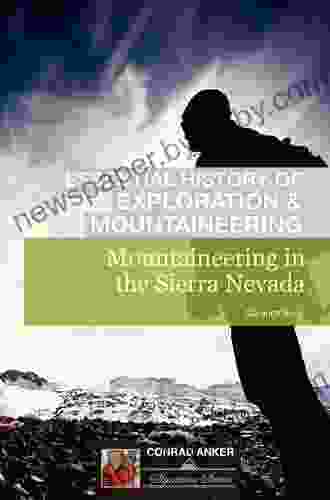
 Esteban Cox
Esteban CoxMountains of California: An Essential History of...
From the towering...

 Devin Ross
Devin RossComm Check: Unveiling the Heartbreaking Final Flight of...
Comm Check: The Final Flight of Shuttle...
4 out of 5
| Language | : | English |
| File size | : | 622 KB |
| Text-to-Speech | : | Enabled |
| Screen Reader | : | Supported |
| Enhanced typesetting | : | Enabled |
| Word Wise | : | Enabled |
| Print length | : | 126 pages |


